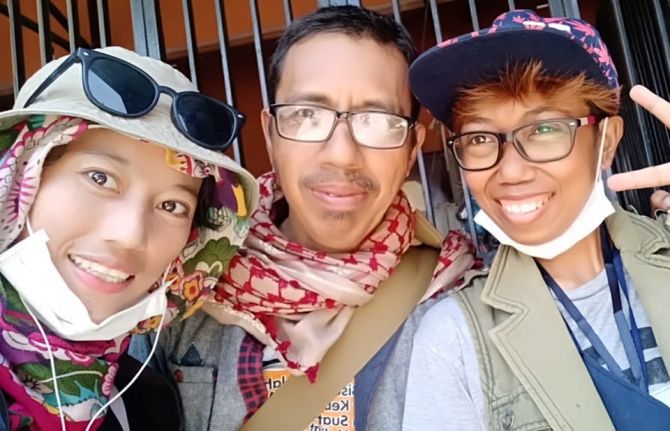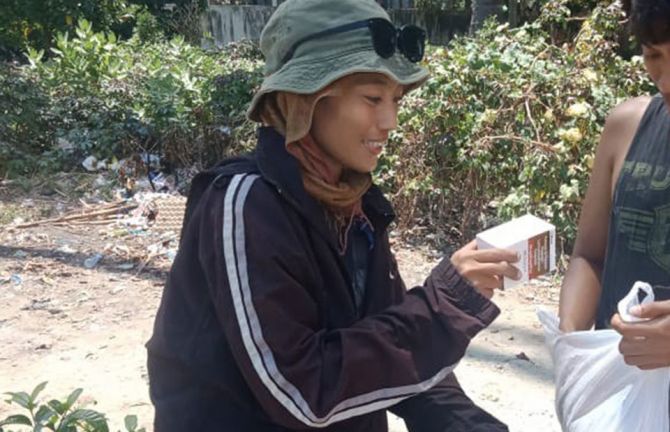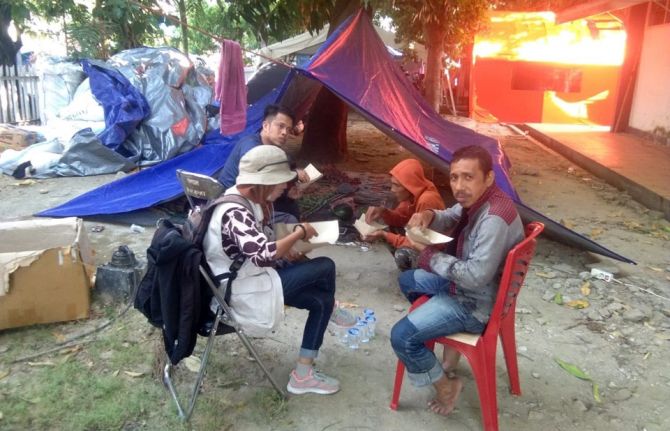



Feature Story
Race to ensure that people living with HIV get treatment after Central Sulawesi earthquake
19 October 2018
19 October 2018 19 October 2018On 28 September, Central Sulawesi, Indonesia, was struck by a powerful earthquake and a subsequent tsunami. Thousands of people are known to have died and tens of thousands of people have been displaced. In the event of a major humanitarian disaster, the basic needs of people are always difficult to fulfil—this is especially true for people living with HIV in Central Sulawesi.
The hospitals in the town of Palu are heavily damaged but remain operational. There are still stocks of antiretroviral therapy in those hospitals, but there are concerns about how long those stocks will last. Before the disaster, according to government data, there were an estimated 1913 people living with HIV in Central Sulawesi, with 334 people, including three children, on antiretroviral therapy.
People in the region have been rallying as champions for people living with HIV. Yuli works for the Indonesia AIDS Coalition, a civil society organization monitoring support for antiretroviral therapy, in Makassar in South Sulawesi, Indonesia. On 2 October, while on her way to Donggala, a region affected by the earthquake, to check on her family, she heard from her employer about severe disruptions in the supply of antiretroviral medicines in Palu.
Yuli and her colleagues headed to Palu to provide help, contacting hospitals and other service providers to gather the remaining stocks of antiretroviral medicines to distribute to those in need. Her mission quickly became a commitment to support the HIV response in Palu, including helping in contact tracing and providing social support for people living with HIV in the region.
“The reason I’m still here more than two weeks after the disaster is because it is impossible to see the conditions and not lend a helping hand,” Yuli said, explaining that, in addition to antiretroviral medicine, people in Central Sulawesi need support for their basic needs and psychosocial support.
By 16 October, 92 out of the 344 people previously on antiretroviral therapy had accessed a one-month supply of antiretroviral medicines, either from Yuli and her team or directly from clinics.
“My main concern is that I want to make sure that even though the disaster happened, people living with HIV still get access to antiretroviral therapy and not stop their treatment,” Yuli said.
UNAIDS and partners in the region have joined together as the National Core Team for HIV Response in Humanitarian Settings. The team is actively working to support the HIV response in the affected areas, trying to find out the status of the people living with HIV yet to be found and ensuring the distribution of antiretroviral medicines to those who need them. A command post for HIV has been established in Palu, with a team monitoring the availability of antiretroviral medicines in the affected region.
“HIV is often overlooked in emergency situations. We must work hard to ensure that people living with HIV are not forgotten in times of need. We applaud the quick initiative and commitment of Yuli and her fellow outreach workers and will continue to provide them with support,” said Krittayawan Tina Boonto, UNAIDS Country Director for Indonesia.
The UNAIDS office in Indonesia has mobilized resources to fund six field visits by peer supporters for people living with HIV to Palu to provide immediate assistance. UNAIDS will also conduct a full needs assessment for HIV, tuberculosis and malaria in Central Sulawesi to develop funding requests for medium- and long-term assistance and will establish contingency plans for use in the event of future disasters in Indonesia.



